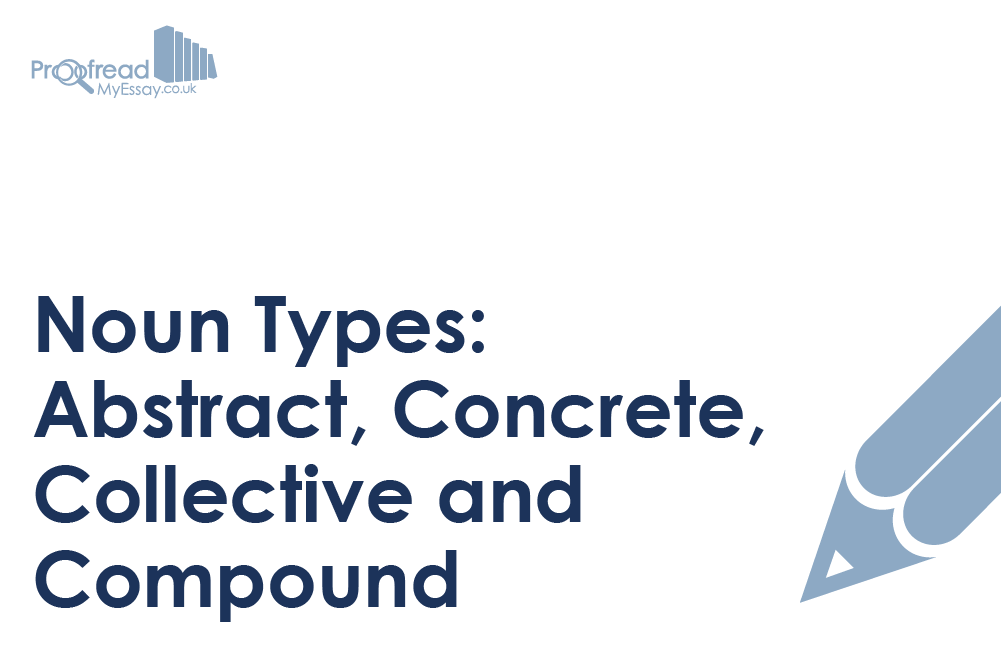Most of us know that nouns are naming words. The noun ‘dog’, for instance, is the name we use for the species of four-legged, domestic mammals that occasionally drink out of toilets.
Nouns are thus fundamental to language, and knowing how different types of noun work, as well as the differences between them, can help us to express ourselves clearly.
In today’s blog post, we look at four distinct noun types: abstract, concrete, collective and compound nouns.
Abstract and Concrete Nouns
We’ll look at abstract nouns and concrete nouns together, since they name opposite types of thing. The simplest nouns are probably concrete nouns, which name tangible things.
This means that concrete nouns name things that we can sense, such as by seeing or touching them. ‘Dog’ is a concrete noun, for example, since a dog is something we can see, hear, touch and smell (best to avoid tasting them, for the most part).
Other concrete nouns include:
- People (e.g. ‘dancer’, ‘brother’, ‘Taylor Swift’)
- Places (e.g. ‘Jupiter’, ‘Mongolia’, ‘beach’)
- Objects (e.g. ‘phone’, ‘apple’, ‘tears’)
Abstract nouns, meanwhile, are nouns which name concepts or other intangible things (i.e. things that we cannot touch, taste, see, hear or smell), like ‘disapproval’, ‘Thursday’ or ‘happiness’.
Collective Nouns
Collective nouns are actually a subcategory of concrete nouns, specifically naming groups or collections of things. For instance, the word ‘team’ is a collective noun for a group of people working towards a common goal (usually in competitive sports).
Find this useful?
Subscribe to our newsletter and get writing tips from our editors straight to your inbox.
One factor to consider here is verb agreement. Generally, British English allows you to use either singular or plural verbs after a collective noun, so either of the following would be correct:
Singular: The team is close to winning the cup!
Plural: The team are close to winning the cup!
However, some style guides recommend only using the singular after a collective noun, especially those which favour American English conventions.
Compound Nouns
Compound nouns are made up of two or more words but name one thing. For instance, the words ‘paper’ and ‘clip’ together name a small metal object used to hold together sheets of paper.
Compound nouns can be open (i.e. two words with a space in between), hyphenated (i.e. two words connected by a hyphen) or closed (i.e. two words combined into one):
- Open compound nouns (e.g. ‘coffee shop’, ‘police station’, ‘dog handler’)
- Hyphenated compound nouns (e.g. ‘ice-axe’, ‘father-in-law’, ‘dry-cleaning’)
- Closed compound nouns (e.g. ‘hairdresser’, ‘daydream’, ‘football’)
It’s not always easy to know whether a compound noun should be open, closed or hyphenated, since there are no universal rules here.
As such, the important things are to check your style guide, to use a consistent approach throughout your document and to make sure your meaning is clear.
